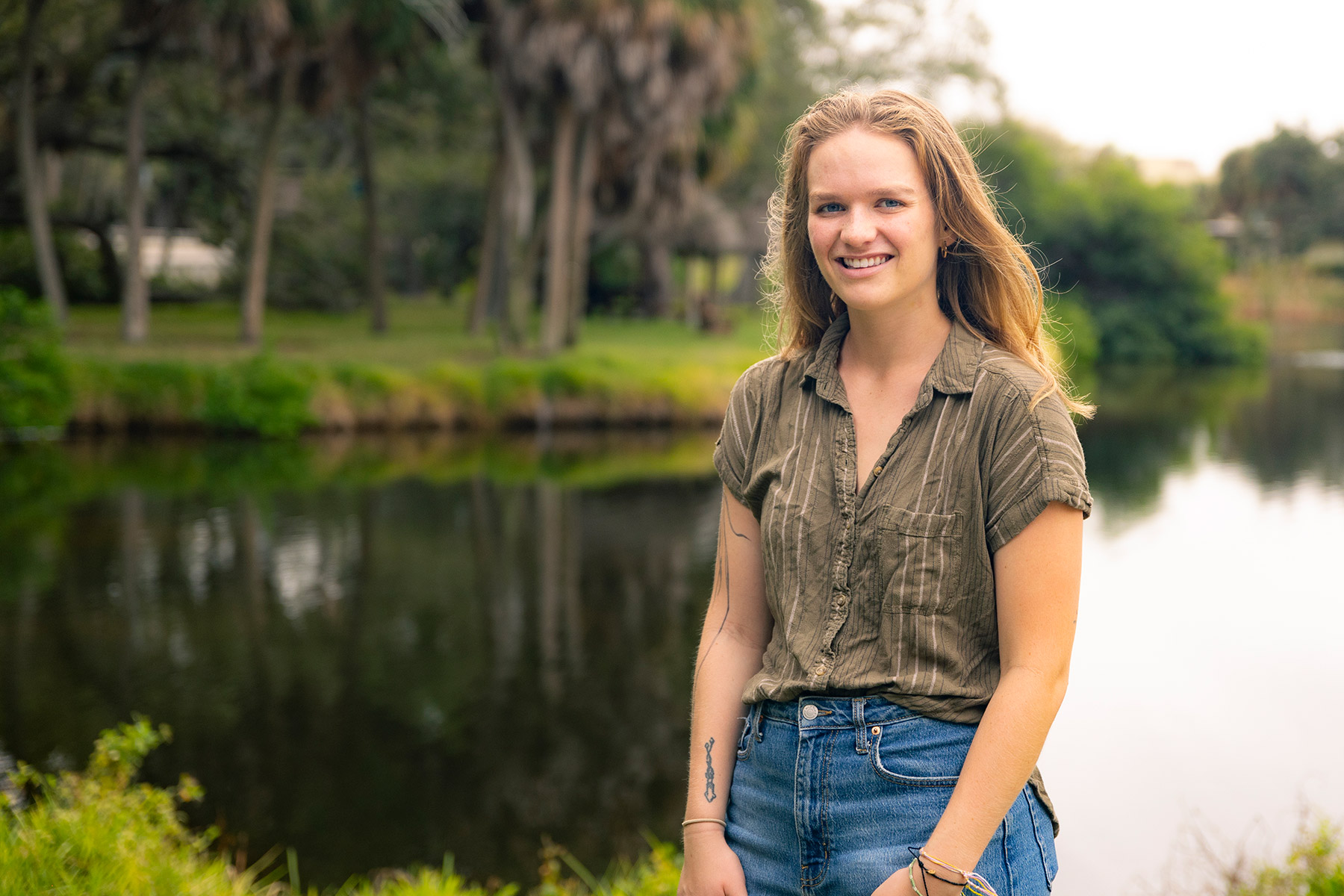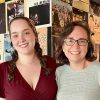Nicole Schaal recently learned she’s about to take the journey of her lifetime. And it involves a fictional starfish.
A senior marine science and environmental studies student at Eckerd College, Nicole will leave for Kenya in early September as a member of the Peace Corps. She’ll spend two years and three months in the East African country teaching science, technology, engineering and math to high school–aged children. For the first three months, she will live in Kisumu, on the shores of Lake Victoria, learning local customs and the official language—Swahili. After that, she’ll be living in a village nearby.
“I’m incredibly excited because it’s so life-changing,” Nicole says. “But I’m also really nervous. I’ll be in a new country, with a new language and none of my support system.”
Whenever she needs a dose of reassurance, she thinks about her mother, a special education teacher in her hometown of Austin, Texas, and The Starfish Story. “My mom’s job is hard,” Nicole explains. “She often feels run down at the end of the day. But then she brings up The Starfish Story.”
Adapted from a 1969 essay by Loren Eiseley, the tale is about a child tossing starfish into the ocean after they washed ashore during a storm. Starfish, the child knows, must remain in water or they’ll die. A man walks by and asks the child why bother, since there are so many starfish in the ocean. “You won’t be able to make much of a difference,” the man says. The child tosses another starfish into the surf, smiles at the man and says, “It made a difference to that one.”
That story, Nicole says, “means that making even a small impact can help change the world. It doesn’t matter where or what I do as long as I’m making an impact. I don’t want to sit and watch other people struggle with climate change or food insecurity when it’s not their fault and I can help somehow.”
Nicole has previously studied abroad in Belize during Eckerd’s Winter Term. She helped Eckerd marine science professors Shannon Gowans, Ph.D., and Amy Siuda, Ph.D., develop the Remora single-use plastics app. She worked with stingrays as a summer intern at the University of South Florida. She conducted research at Eckerd regarding student learning of calculus and is writing a paper to publish the findings. And she was a member of the Eckerd College Search and Rescue Team for two and a half years.
Nicole also is part of the Eckerd College Peace Corps Prep undergraduate certificate program, which combines targeted coursework with service-oriented fieldwork and professional development training designed to make participants more competitive when applying for postgraduate Peace Corps volunteer positions. To date, 186 Eckerd graduates have served as Peace Corps volunteers.
“Nicole’s placement in Kenya in the Peace Corps showcases her talent, skills and experiences that she had while at Eckerd,” says Kathleen “Kat” Robinson, Ph.D., assistant dean of faculty at Eckerd. “She traveled and studied in Belize, she was part of our EC-SAR Team, and she studied French. Nicole’s well-rounded academic and extracurricular experiences make her, like many of our EPC [Eckerd Peace Corps] students, a solid fit for service.”
Nicole chose the College, she says, because of its Marine Science Program and smaller classes. “I wanted to be able to meet the teachers and know my peers and build those connections. And I wanted to be out of Texas; Austin was the only place I really knew.”
She didn’t seriously consider the Peace Corps until she took an environmental studies course with Noӫlle Boucquey, Ph.D., associate professor of environmental studies at Eckerd. “It changed my life,” Nicole says. “She taught us about topics, like environmental injustice, that I knew about but had never learned about. How smaller communities are often forgotten, how human perspective is so important, and how we have to think about the people being affected.
“Now I want to share my knowledge and help others have equal access to learning.”













